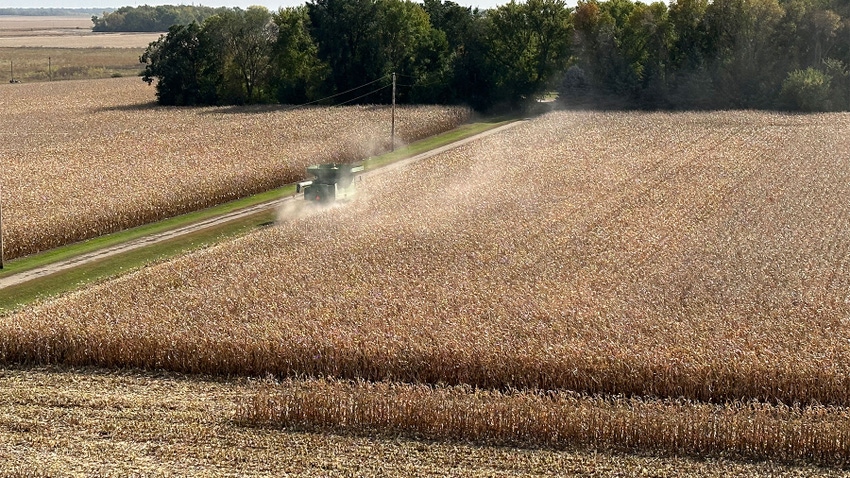
Every year can be a challenge for farmers, and Gary Wertish acknowledges that 2023 has been no different. He’s quick to add, however, that that was not evident at the recent annual meeting of the Minnesota Farmers Union.
“I was really impressed with the positivity of the energy in the room of the members,” says the MFU president, originally from Renville, Minn. “With the drought throughout most parts of the state, it was a challenging year — but then again with agriculture, it’s always a challenging year.”
With the challenging year behind them, MFU delegates look ahead by passing “special orders of business,” which are the organization’s legislative priorities for the next session. Wertish, the MFU president since 2017, offers insight into those priorities.
Ensuring affordable and accessible care in rural Minnesota. “Cost of health care is really unsustainable,” he says, “but in the more rural areas it’s even tougher to have health care in a close distance — whether it’s a good ambulance service or a clinic or hospital.”
Wertish says the last legislative session saw the passage of the MinnesotaCare Buy-In; “We understand it’s certainly not a silver bullet to fix all our health care needs, but it is offering affordable health care for low-income people. We’ve been able to open it up now so an individual farmer, a small business owner — you’ll be able to get on that.”
He admits work remains to be done, as a federal waiver would be necessary before the program is implemented in 2027.
In the end, Wertish sees the answer needs to be affordable and accessible health regardless of where you live in the state, saying “and I think opening up MinnesotaCare Buy-In is one small step to start working on this.”
Curbing monopoly power and protecting competition. This issue dates back to the beginning of the Farmers Union in 1902, with Texas cotton producers fighting for a fair price. Wertish looks at the structure of today’s ag businesses. “In the meatpacking industry, you have four companies that dominate and two of those are foreign owned. … In machinery implement manufacturers, you’ve got three that dominate, as well as with seed, fertilizer and chemicals.”
With that structure, Wertish questions if farmers and consumers are getting a fair price: “We need a level playing field, and we need to curb the corporate power.”
Investing in climate resilience. Wertish points to weather extremes over the last few years, from droughts of rainfall and hailstorms. “That affects everybody — not only the farmers raising their crops, but everybody with their insurance rates; it’s hitting the insurance industry really hard,” he says.
He adds that farmers realize practices implemented in fields may impact the world around them: “We’re encouraging voluntary conservation programs that we need to really look at, such as what they call climate-smart farming.”
A part of that, he acknowledges, is increasing the use of biofuels to move into higher blends of ethanol or biodiesel. “There’s a lot of interest in the sustainability of aviation fuel, and Gov. [Tim] Walz is committed to trying to get Minnesota to take the lead on this.”
Addressing the shortage of veterinarians. Minnesota has a vibrant livestock industry, and that vibrancy relies on keeping the state’s herds and flocks healthy. But a lot of rural areas in Minnesota and beyond face a veterinarian desert, especially when it comes to large animals.
Wertish says the University of Minnesota College of Veterinary Medicine is maxed out on students allowed in. “We need to increase their facilities, or maybe take a look at establishing a new certified veterinarian technician license that performs the basic veterinarian services, or create new training programs for students seeking to go into practice.”
Other incentives to entice veterinarians to practice on livestock in rural Minnesota, Wertish feels, could come through state-funded scholarships. “There’s so many other things you can do, but we definitely need to address it,” he says.
Passing a comprehensive farm bill. Congress did approve the current farm bill extension through September 2024, “but we can’t sit back,” he says. “There’s a lot of work to do on the farm bill. The farm bill has worked relatively well, but you definitely can do some improvements.”
A lot has changed since the current farm bill was approved in 2018, in agriculture, Congress and the world.
“We need to look at how the farm bill can help all types of farmers,” Wertish says. Whether that is giving specialty crop producers more protection, “it needs to be a safety net for all farmers, and a safety net for rural communities as well.”
Though the farm bill is extended through next September, Wertish doesn’t want to see this legislation kicked down the road, especially in an election year. “Congress, especially on the House side, is pretty dysfunctional right now; but hopefully, we’ll come back together and put politics aside and really work hard on this. … Really need to get it advanced in the next three, four months and come together. If you get past that you get into the election-year politics, and it’s going to be hard to get anything done.”
About the Author(s)
You May Also Like






